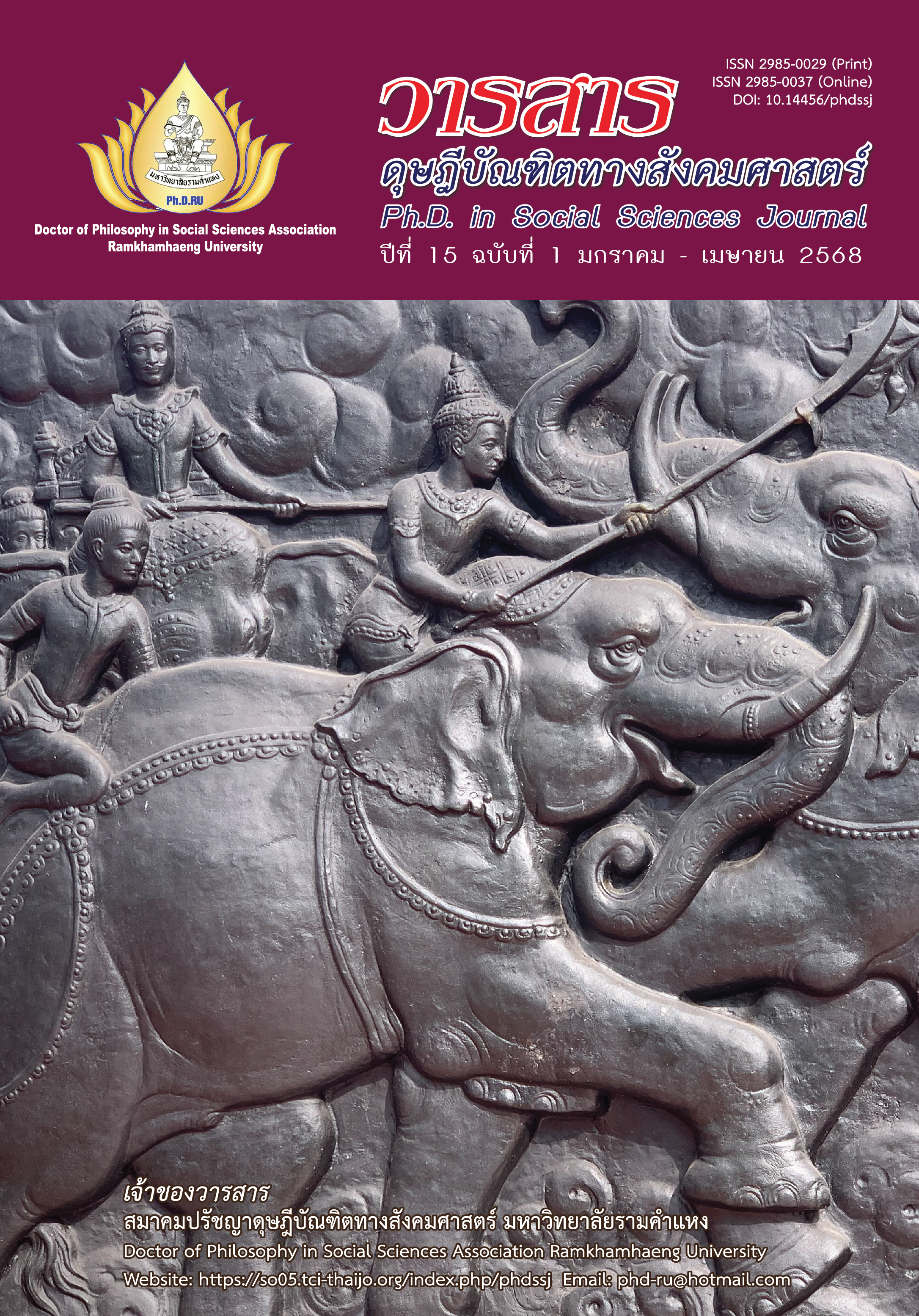Legal Issues on the Application of Punitive Damages in Case of Privacy Violation Cases
Main Article Content
Abstract
This research article aims to study the legal problems on privacy vilolations by the use of technologies and the application of punitive damages, the concepts and theories relating to privacy violations and legal remedies by adopting the punitive damages to such case, legal principles and analysis on legal problems on the liabilities of persons violating privacy rights and the application of the principle of the punitive damages vested in the common law and Thai Laws, and to propose the revisions of the laws relation to the violation of privacy rights by awarding punitive damages to the injured person in order to deter and protect the rights of injured person effectively. Using qualitative research methods and collect data with document research. Data were analyzed using content analysis techniques and interpreted comparison.
Findings are as follows: Section 420 of the Civil and Commercial Code of Thailand protects individuals from any unlawful actions against any right but whether such right includes privacy right or not. This is not clearly stated. However, the privacy right is under protection by section 32 of the Constitution of Thailand. The act of police officer who installs the GPS device attached property of the target victim is considered as violation of privacy since it violates expectation of privacy of the people, in case where the police officer obtains information stored by online service providers without a court warrant is considered as privacy violation as well and the court is unable to award punitive damages in the privacy violation cases. Thus, the researcher proposes to revise the term “any right” to include “privacy right,” impose the provision for the police to obtain the court warrant before attaching the GPS device to the target victim, impose the provision for the police officer to obtain the court warrant in order to obtain information stored by online service providers and revise the provision section 438 of the Civil and Commercial Code to empower the court is able to award punitive damages in the privacy violation cases but such punitive damages shall not be over than twice amount of the actual damages.
Article Details

This work is licensed under a Creative Commons Attribution-NonCommercial-NoDerivatives 4.0 International License.
Academic articles, research articles, and book reviews in the Ph.D. in Social Sciences Journal are author’s opinions, and not the publisher’s, and is not the responsibility of the Ph.D. in Social Sciences Journal Philosophy Association, Ramkhamhaeng University. (In the case that research is done on human, the researcher has to be trained in Ethics for Doing Research on Human Training and has to produce the evidence of the training).
References
Pengniti, P. (2002). Explanation of the Civil and Commercial Code on torts: Tort liability of officials and other related laws (2nd ed.). Institute of Legal Education of the Thai Bar. [In Thai]
Rathamarit, U., Suriya, N., & Singkaneti, B. (2001). Claiming human dignity or exercising personal rights and freedoms according to Section 28 of the Constitution of the Kingdom of Thailand B.E. 2540 (1997). Office of the Constitutional Court. [In Thai]
Singkaneti, B. (2000). Fundamentals of rights, freedoms, and human dignity according to the Constitution of the Kingdom of Thailand B.E. 2540 (1997). Winyuchon. [In Thai]
The United Nations. (2024). Universal declaration of human rights. Retrieved from https://www.un.org/en/about-us/universal-declaration-of-human-rights
Uwanno, B. (2001). Public law volume 1: Philosophical evolution and characteristics of public law in various eras (4th ed). Winyuchon. [In Thai]


